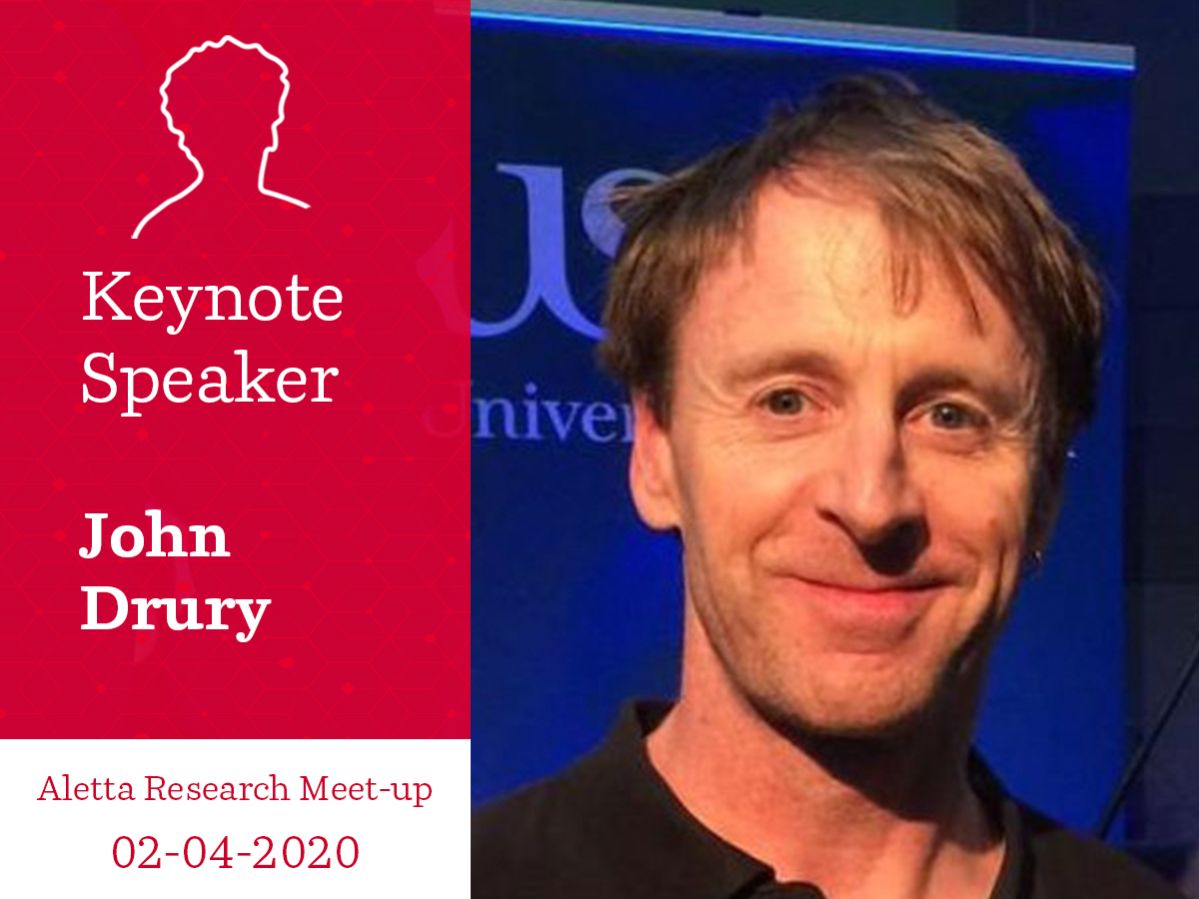Meet John Drury: Keynote speaker at the Aletta Research Meet-up

On 2 April 2020 our 6th Aletta Research Meet-up will take place. This time, the meet-up is dedicated to the topic Communities & Health, because as we all know, health is influenced by many factors, of which few are exclusively in the power of the individual. In this blog you can read more about the subject of John Drury’s keynote: ‘Collective psychosocial resilience in crowds in mass emergencies’.
John Drury
John Drury is a professor of Social Psychology at the University of Sussex. His research focuses on collective behaviour in mass emergencies, riots and other crowd events.
Mass panic
The idea of mass panic has long been discredited in the social sciences. In the last twenty years, however, the official guidance has begun to change to reflect the evidence of the role of supportive and adaptive behaviour by most people in emergencies, reflecting the practical need for community resilience. Drury: “Some people might panic in emergencies but this is uncommon. The main danger in emergencies such as fires is not panic, but under-reaction. People are often too slow to respond to signals such as alarms”. In relation to how people behave collectively in emergencies, the key findings of Drury’s research have included the role of emergent shared social identity in enhancing supportive actions among strangers. Drury: "Those who have had experience of emergencies often have stories to tell about supportive behaviour from strangers.”
Social identity in enhancing supportive actions
During the keynote, Drury will describe work by him and his colleagues which has documented and analysed the process underlying emergent collective resilience in crowds in various emergencies. Using interviews, archive data and surveys, he and his colleagues have found a common pattern whereby a sense of common fate gives rise to shared social identity amongst those affected by an emergency which in turn is the basis of cooperative behaviour. “The cognitive capacity to re-define oneself as part of a group (from being just an individual) seems to be human nature.” Drury explains. This research and theory demonstrates the importance of social identity and group processes in emergencies and has implications for the management of these events.
From research to policy
The research is not only used for the management of big events. Drury’s research with Dr. Holly Carter at Public Health England is now part of a training for the UK fire and rescue service. “The findings are included in the UK government’s guidance to all those authorities and agencies that manage emergencies.” Drury tells, “And I run regular training workshops for crowd safety professionals, including in the Netherlands. In each case, the professionals learn how to use social identity principles to improve their relationship with the public. This improves cooperation and efficiency in emergencies.”
Keynote
During his keynote, Drury will focus on understanding the process whereby survivors give support to others in emergencies; “This matters for planning as well as for psychology. ‘Community resilience’ – the inclusion of the public in civil contingencies planning – is now standard, but sometimes not understood sufficiently well.”
Check our event page for more information about the Research Meet-up.



